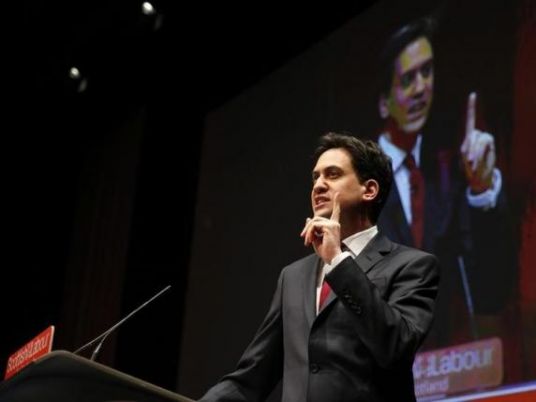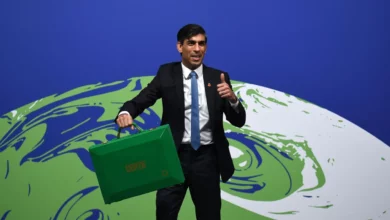
Opposition Labour leader Ed Miliband launched his bid to become Britain's next prime minister on Friday with a plan to protect the treasured but expensive National Health Service and a swipe at private businesses that profit from the state-funded system.
Polls put Labour tied with Prime Minister David Cameron's Conservatives ahead of the 7 May vote. It is set to be the tightest election in decades and the outcome could influence whether Britain leaves the European Union or Scotland launches a fresh bid for independence.
Voters rank the NHS as a key election issue, polls show, and Miliband kicked off his campaign with a tub-thumping speech, painting his party as its trusted guardian.
"We need to rescue our NHS from this government, and we will," Miliband said, speaking at the London 2012 Olympic park. "With a Labour government, there will be a new double lock to protect our NHS: guaranteeing proper funding and stopping its privatization."
Miliband's appearance followed a televised election contest on Thursday that Cameron was judged to have won, although not by a big margin, a poll showed.
Labour got a 1 million pound ($1.5 million) boost to its election coffers on Friday from Britain's largest trade union, Unite. The donation drew an immediate reaction from the Conservatives, who accuse Miliband of being in the pocket of union barons.
Polls show center-left Labour is more trusted by voters than Cameron's center-right Conservatives on the future of the NHS.
The Conservatives deny Labour charges that they are bent on privatizing the service. Funded from taxation, it is free at the point of treatment, but the system is coming under increasing strain from a range of factors including a growing population, increased life expectancy and expensive new treatments.
The Conservatives said Miliband's plans showed he was "incompetent", saying the strength of the NHS was linked to the strength of the economy – an area where the Conservatives are more trusted than Labour.
Miliband pledged Labour would prevent contracts being forced out to private tender and would introduce a 5 percent profit cap on all outsourced contracts worth more than 500,000 pounds.
The promise is aimed at easing fears among some voters that outsourcing treatment to private firms is a step towards introducing charges for patients. The government says 6 percent of the NHS budget is currently spent on private providers.
"It's right to say that when private sector companies are involved, we don't get excess profits, which is draining money away from the National Health Service," Miliband said.
Nevertheless, the policy risks inflaming latent tension with the business community, who fear Miliband's plans for a more hands-on approach to regulation in sectors like banking and energy could make Britain less attractive to investors.




